Keep Your HVAC Happy: Maintenance Tips for Homeowners
Thursday, June 13, 2024
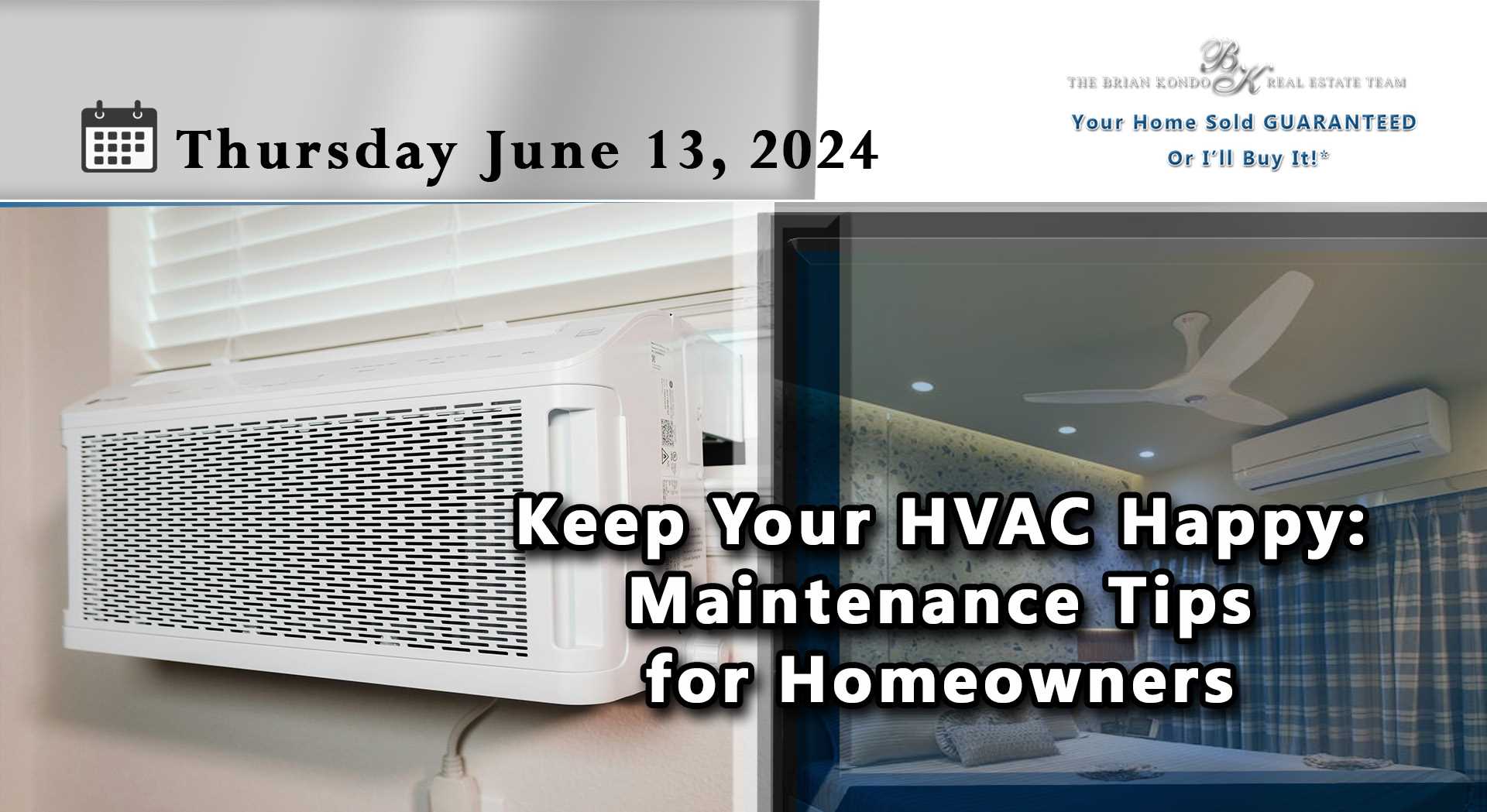
By David Elver for REALTOR.ca
Your heating, ventilation, and air conditioning (HVAC) system is the heart of your home. That’s why it’s important to make sure it’s in top working condition throughout the year.
Luckily, whether you’re an experienced DIY or just looking for a few tips, there are some easy and inexpensive things you can do in the short, medium, and long term to keep your HVAC system happy and healthy.
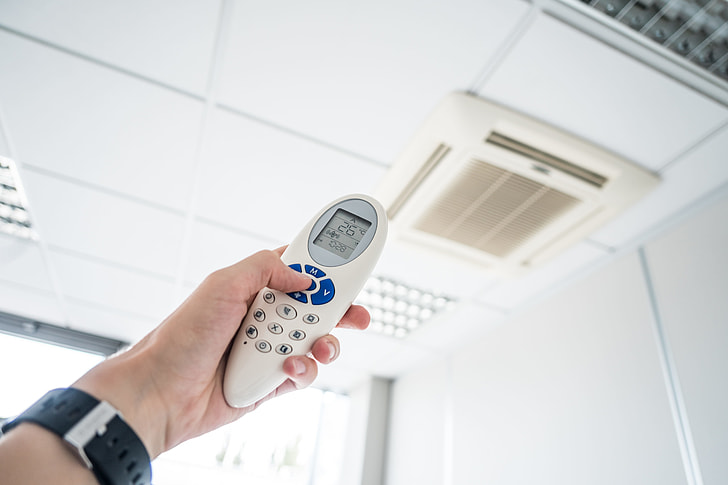
The importance of maintaining your system
“Most of us use our furnace or air conditioner almost every day,” says Ben Sauve, owner of Sauve Heating & Air Conditioning in Prescott, Ontario. “Regular maintenance can extend the life of your HVAC system, improve your indoor air quality, lower your energy bills, and keep your system running smoothly in every season.”
Not maintaining your HVAC system properly could also void your manufacturer’s warranty, warns Nicholas Perreault, Maintenance and Warranty Coordinator with Presidential Ventilation in Mount Uniacke, Nova Scotia.
“Most manufacturer warranties require HVAC systems to be maintained annually,” he explains. “Not maintaining your system properly may void your warranty, and end up costing you more.”

Short-term maintenance tips (weekly, monthly,
bimonthly)
But what does maintaining your HVAC actually involve? In the short term—on a weekly, monthly, or bi-monthly basis— you can maintain your HVAC system by carrying out simple tasks like:
- checking smoke and carbon monoxide detectors monthly;
- check your air filters monthly, and replace as needed;
- keeping indoor vents and registers clear of clutter, and making sure your registers aren’t accidentally pushed closed;
- vacuuming or brushing off registers, vents, and outdoor HVAC units every few weeks to remove dust or debris, and leaving at least two feet (60 centimetres) of clearance around outdoor air conditioning units and heat pumps; and
- monitoring your monthly energy bills to watch for any spikes in consumption that could indicate a problem.
“The most important thing you can do to keep your HVAC system working well is replace the air filter when it gets dusty,” Sauve says. “Dirty filters restrict airflow, which makes your HVAC system work harder and consume more energy.”
When buying a new filter, Perrault recommends getting a high-quality wired mesh filter with a high Minimum Efficiency Reporting Value (MERV) rating. The MERV rating tells you how well the filter traps the tiny particles that can clog your system and impact your air quality.
“The best MERV rating for a residential home generally falls between eight and 13,” he says. “That provides a good balance between air filtration and system efficiency.”

Medium-term maintenance tips (Yearly)
Over the medium term—think yearly rather than monthly— several other issues can pop up that will need attention. To avoid unnecessary breakdowns or repairs:
- invest in a programmable thermostat;
- clean your air conditioner’s evaporator coil and drain line yearly before the heat sets in;
- check your heating system once a year for leaks, and seal any gaps around windows, doors, and ductwork; and
- hire an HVAC professional to inspect your entire system once or twice a year to prevent serious problems before they occur.
“After high winds or snowstorms, it’s also a good idea to make sure the outside vents aren’t blocked or damaged,” Sauve adds. “Same goes for your gas meter, propane tanks, and oil tank pipes.”
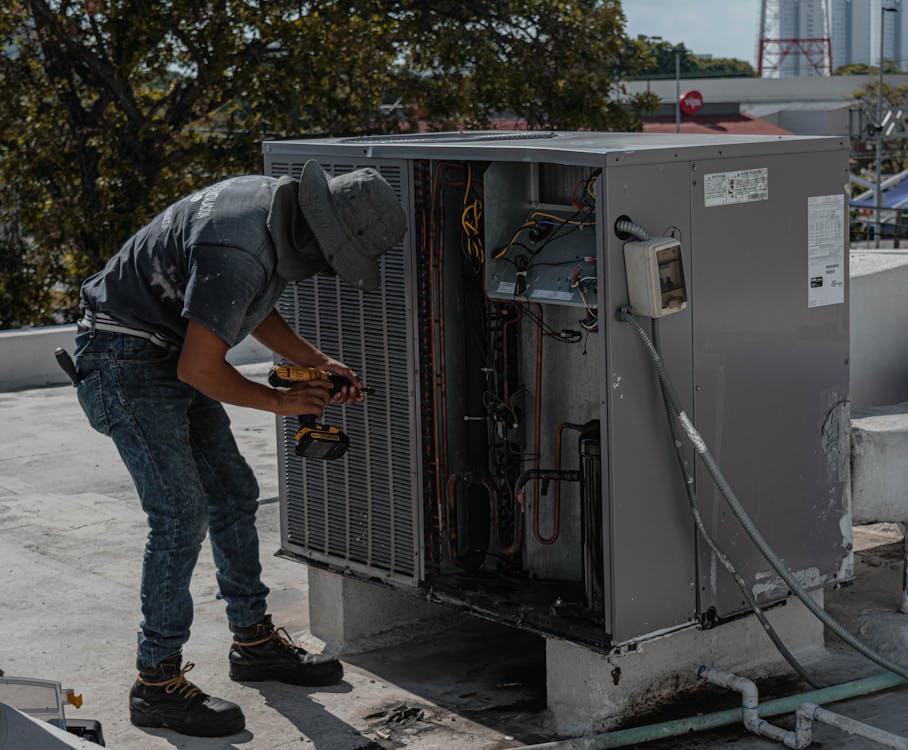
Maintenance tips for the long term (every two years or so)
Lastly, to help keep your energy bills low and your HVAC system running well over the long run:
- have your furnace gas line inspected by a professional every few years;
- have your ducts inspected and cleaned by a reputable provider (be leary of unsolicited phone calls) every two to three years, and after any large renovations;
- if your HVAC system is 15 to 25 years old (or older), consider upgrading to a more modern system before it breaks down; and
- when it comes time to buy a new system, ask questions about energy efficient options available to you and suitable for your home and lifestyle – like a heat pump.
“Heat pumps are approximately 350% efficient and can save hundreds of dollars per year on your energy costs,” Sauve says. “When installed properly, they heat and cool your home regardless of the outdoor temperature.”
Perrault also recommends setting your thermostat at a temperature that’s comfortable all year round, and then leaving it alone.
“Temperature swings of more than two degrees make the system work much harder,” he explains. “So the less you play around with the thermostat, the fewer problems you’ll have.”

Warning signs of trouble
Even the best-maintained system will eventually run into problems. The key is to take care of them as soon as possible.
“Ignoring a problem will only make things worse,” Sauve says. “It can also make other components work harder or become more difficult to repair.”
You can spot most issues just by keeping your eyes and ears open. For instance, common warning signs of potential trouble with your HVAC system include:
- reduced airflow;
- uneven heating and cooling;
- strange noises or smells coming from the system;
- frequent cycling (the system turning itself off and on);
- difficulty keeping your home warm in the winter or cool in the summer; and
- sudden increases in your monthly utility bills.
“If you’re not warm in the winter or cool in the summer, there’s likely something wrong with the HVAC,” Sauve explains. “If you hear different noises or smell new smells, that’s a good indication something’s wrong. If you see black, sooty marks around inside or outside vents, call your HVAC company immediately.”
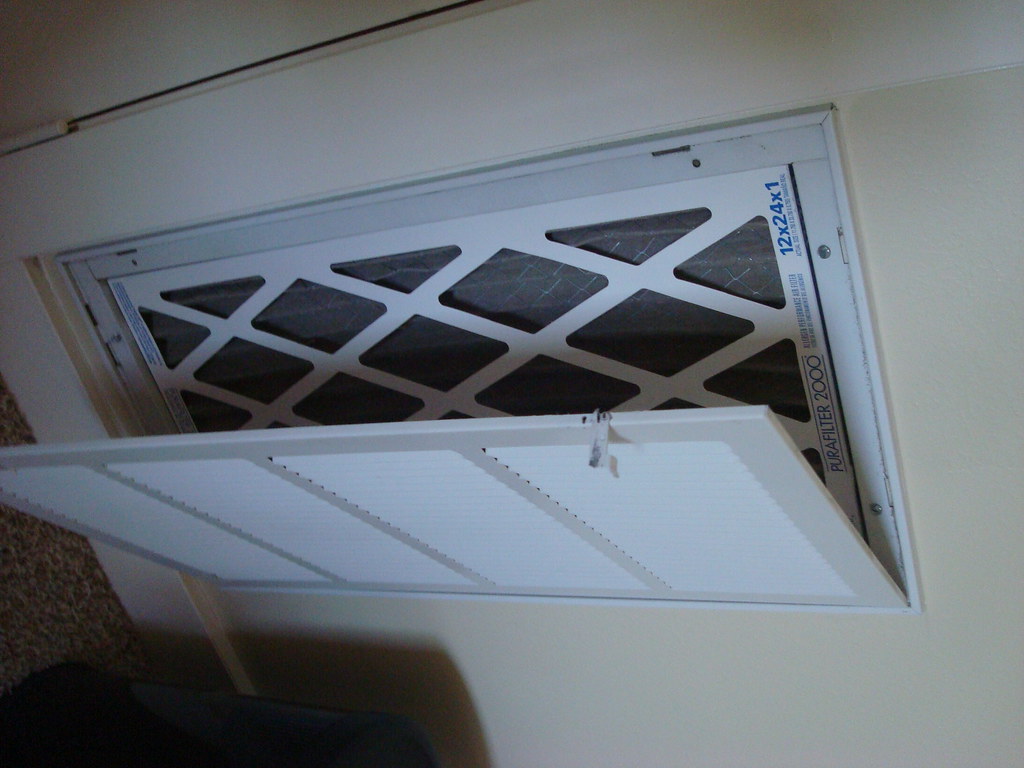
How to troubleshoot common problems
Most HVAC issues are better left to a professional. But there are a few things you can try on your own. For example, if your system isn’t working efficiently:
- clean or replace your air filter;
- make sure the vents and registers aren’t obstructed;
- check if the furnace has power. Check the furnace switch and if the breaker/fuse needs to be reset; and
- make sure the thermostat is turned on and set properly, and replace the batteries if needed.
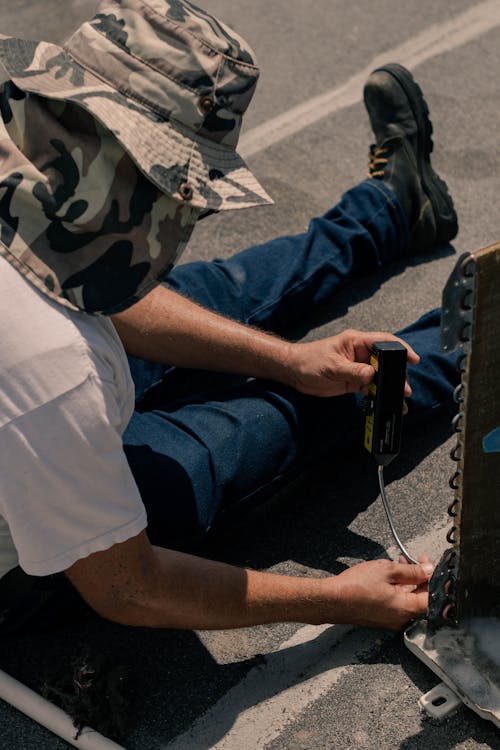
Know when to call a professional
No matter how handy you are, every homeowner should know when it’s time to call in the professionals.
“Ninety-nine per cent of HVAC issues should be looked at by a certified technician,” Perrault says. “Playing with a complex digital HVAC system could cause even more damage. Contacting the company that installed your system is always a better option than trying to troubleshoot it yourself.”
Sauve says he couldn’t agree more. “If it’s more than cleaning the vents or changing filters or batteries, leave it to the pros,” he notes. “Even if the furnace isn’t giving heat, there are electrical dangers to be wary of. So put safety first, and pick up the phone before you pick up your toolbox.”
David Elver's article was initially published on REALTOR.ca. You can find it by clicking here.
| REALTOR.ca is the most popular and most trusted real estate website in Canada. Owned and operated by the Canadian Real Estate Association (CREA), REALTOR.ca provides up-to-date and reliable information that makes finding your dream property easy and enjoyable. REALTOR.ca is popular with sellers, buyers, and renters and is accessible online and on mobile devices. |
|
|
About the Author David Elver is a Vancouver-based freelance writer, editor, and screenwriter who has worked with some of Canada’s leading public- and private-sector organizations. His work has appeared in newspapers, magazines, and online publications across Canada, and run the gamut from feature articles and social media success stories to best-selling coffee table books and two feature-length television movies. David enjoys kayaking, snowshoeing, and sunset strolls on the beach, although usually not at the same time. |
Thanks for reading today’s BLOG!!!

Brian Kondo
Sales Representative / Team Leader
The Brian Kondo Real Estate Team
Re/Max Hallmark First Group Realty Ltd.
905-683-7800 office
905-426-7484 direct
brian@briankondo.com
www.BrianKondo.com
www.BrianKondoTeam.com
Homesellers - Find Out What Homes in Your Neighbourhood are Selling For! You can receive a FREE computerized printout of ALL recent Home Sales and Current Listings in your neighbourhood. Click here!
Best Buy Hotlist - You can receive a FREE list of the 10 Best Buys in your
specific price range sent to you at No COST or OBLIGATION.
Click here!
Your Home Sold Guaranteed or I'll Buy It!* No Gimmicks! For a Free Special Report that Details my Guaranteed Sale Program, visit: www.BriansGuaranteedSaleProgram.com.
Remember, your referrals change lives! We donate a portion of our income on every home sale to a great worthy cause like SickKids Hospital. To find out more visit: www.ReferForSickKids.com.
If you or anyone you know is considering making a move in the next little while, give me a call or pass on my number ... 905-683-7800 (Office) or 905-426-7484 (Direct).
#HVAC #Ventilation #HouseHeater #HVACSystem #HVACMaintenance #CleaningHVAC #CleaningAircondition #ComfortableHouse #ComfortableLivingRoom #Airconditioning #RoomTemperature





